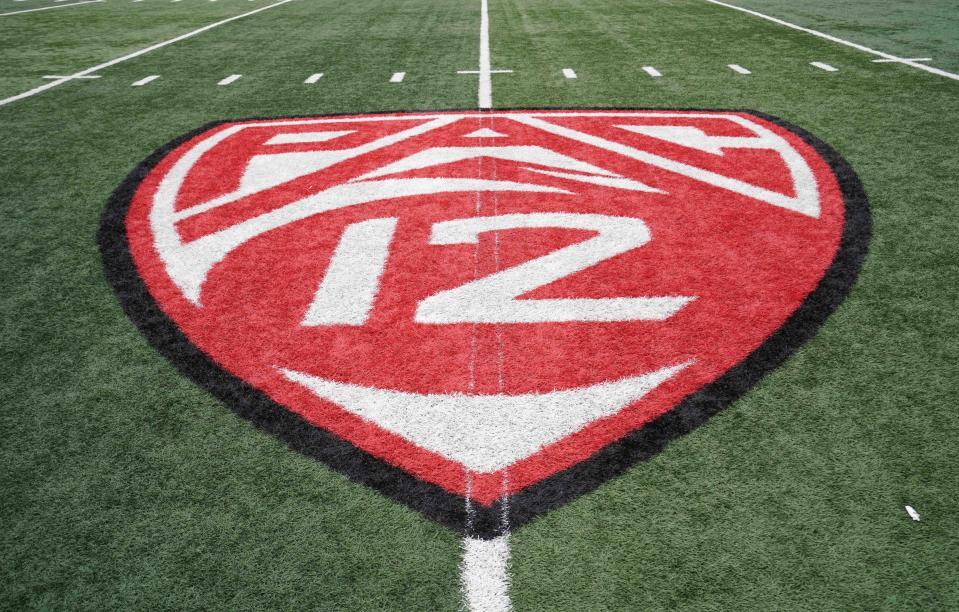Analysis: New Pac-12 commissioner promises fresh path for conference beset with problems
After just a few minutes on a Zoom call with reporters Thursday, you could tell new Pac-12 commissioner George Kliavkoff had done his homework.
Without being asked, Kliavkoff read a laundry list of issues that have roiled the league for years as it relates to the commissioner’s office: listening and building relationships with people on campuses, optimizing revenue, fixing distribution issues with the Pac-12 Networks, re-examining kickoff times and lamenting the lack of championships won in the marquee sports of football and men’s basketball.
Though it would have been too awkward for Kliavkoff to say it this explicitly, the subtext of the entire presentation was clear: Remember the last guy you complained about until you finally ran him out of town? I’m here to do the opposite.
At the very least, it was a promising beginning for Kliavkoff, whose name sent people throughout college sports straight to a Google search when it first surfaced — which naturally led to some raised eyebrows over a résumé that includes lots of experience in sports and digital media but none on a college campus.
When the Pac-12 announced in January it was parting ways with Larry Scott, the assumption was that the league’s presidents might lean toward an old hand from the College Sports Industrial Complex as a stabilizer and relationship builder to clean up what had become a pretty toxic relationship between the commissioner’s office and the Pac-12 athletics departments.
OPINION: Pac-12 bungled, cheapened its championship football game
SCANDAL: Female massage therapist had sex with five Ohio State football players

Though Scott’s tenure will be defined by a miscalculation on the Pac-12 Networks' ownership and distribution model — decisions that left the league well behind its peers in terms of television revenue — much of the aggravation directed his way was rooted in the sense that he just didn’t get it. From the officiating issues that were never fixed to complaints about football scheduling that went in one ear and out the other to spending lavishly on office space and travel at a time when belts were tightening across the league, Scott — who had previously spent his career as an executive with the men’s and women’s professional tennis tours — was viewed on many campuses as an out-of-touch plutocrat who didn’t invest much time or energy in connecting with his constituents.
For that reason, some will be skeptical of Kliavkoff, who is leaving a job as president of entertainment and sports for MGM Resorts. Prior to that, Kliavkoff was the chief digital officer for NBC Universal that helped launch Hulu and spent many years as an executive responsible for growing Major League Baseball’s digital media operation.
But if you can just set the trauma from Scott’s tenure over to the side, Kliavkoff actually has an ideal background for what a college commissioner should be in 2021. He’s been the chief executive of a massive events business, has been deeply involved in the digital media environment and has done huge television distribution deals.
“What drew us to George was his ability to see where the hockey puck was going to go,” Oregon president Michael Schill said. “He’s very much a new prototype for a sports commissioner.”
Yes, it’s true that conference politics and campus relationships can be tricky and nuanced, but that’s not really unique to college sports. It’s simply a test of leadership. Until very late in his tenure, Scott didn’t show a ton of interest in building consensus or making athletics directors in the league feel like partners. The issues that sunk him were mostly about his management style, not his background with the Women’s Tennis Association.
“My leadership style is relationship driven,” Kliavkoff said. “My intention is to listen.”
George Kliavkoff to serve as new Pac-12 Commissioner.
A sports & media executive, he brings unparalleled expertise in managing change & driving results from roles at MGM Resorts, Hearst, NBCUniversal & MLB Advanced Media.
Full Info ➡️ https://t.co/MmlYtnYvN5#BackThePac pic.twitter.com/JSJbTzjL4h— Pac-12 Conference (@pac12) May 13, 2021
For Kliavkoff, the adjustment to college sports probably won’t be as difficult as the job itself. The Pac-12 has real challenges competitively right now in football, having been represented in the College Football Playoff just twice in its seven-year existence. It also owns and operates a television network that, according to the Mercury News, had just 14.8 million subscribers as of December 2020 compared to more than 50 million for the Big Ten and SEC networks.
“The (Pac-12’s) greatest weakness is the number of years it has been since we’ve won a football or men’s basketball championship, and we’re going to do whatever we can at the conference level to fix that,” said Kliavkoff, who also acknowledged that the media deals need to be renegotiated to maximize revenue.
While some of that gap is baked in, the overwhelming sense around the Pac-12 is that it underachieved for the past decade. Though Kliavkoff may look like he comes from a similar background as his predecessor, he made it clear right out of the gate that he plans to pursue a different path.
Follow Dan Wolken on Twitter @DanWolken
This article originally appeared on USA TODAY: New Pac-12 commissioner promises change for beleaguered conference

